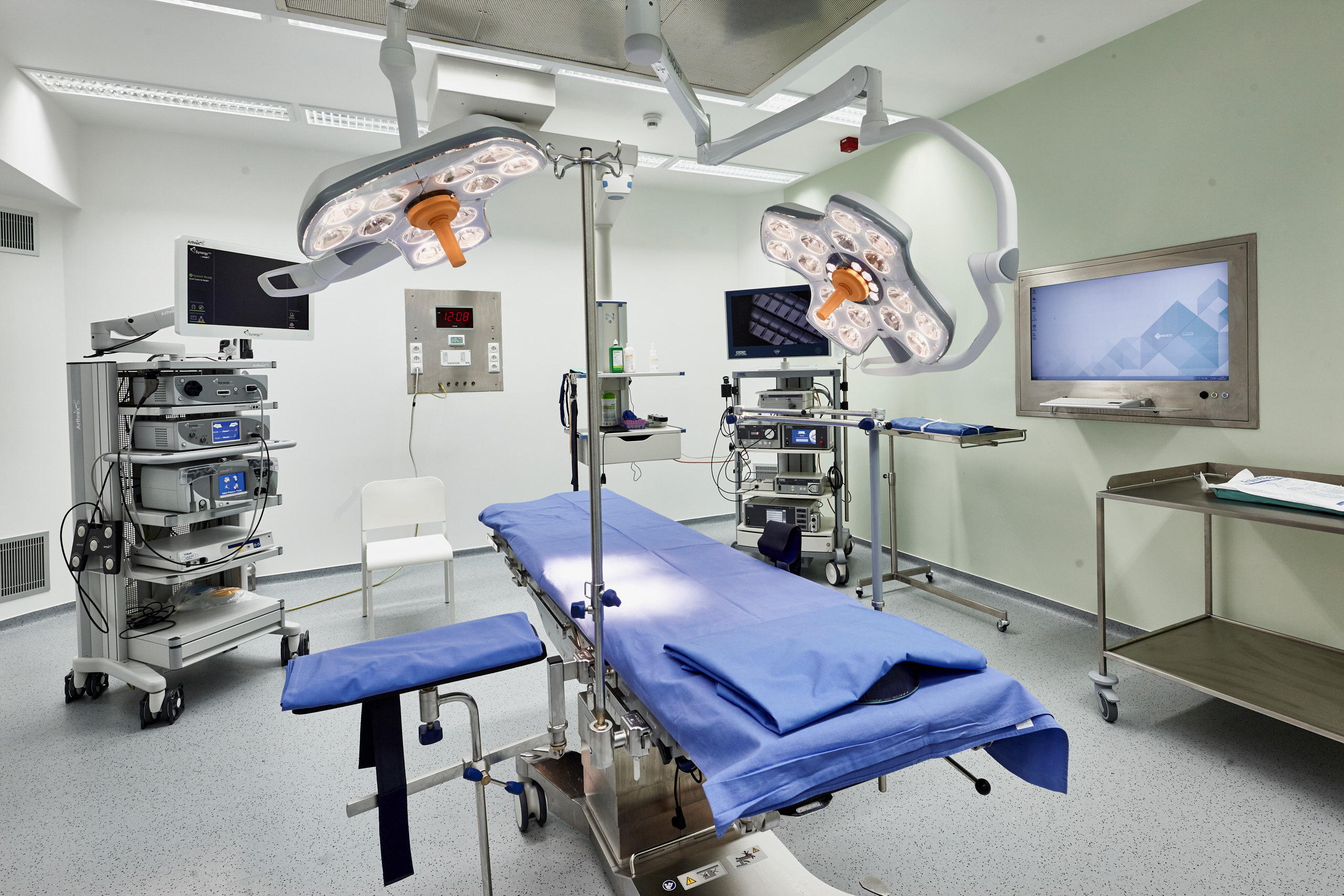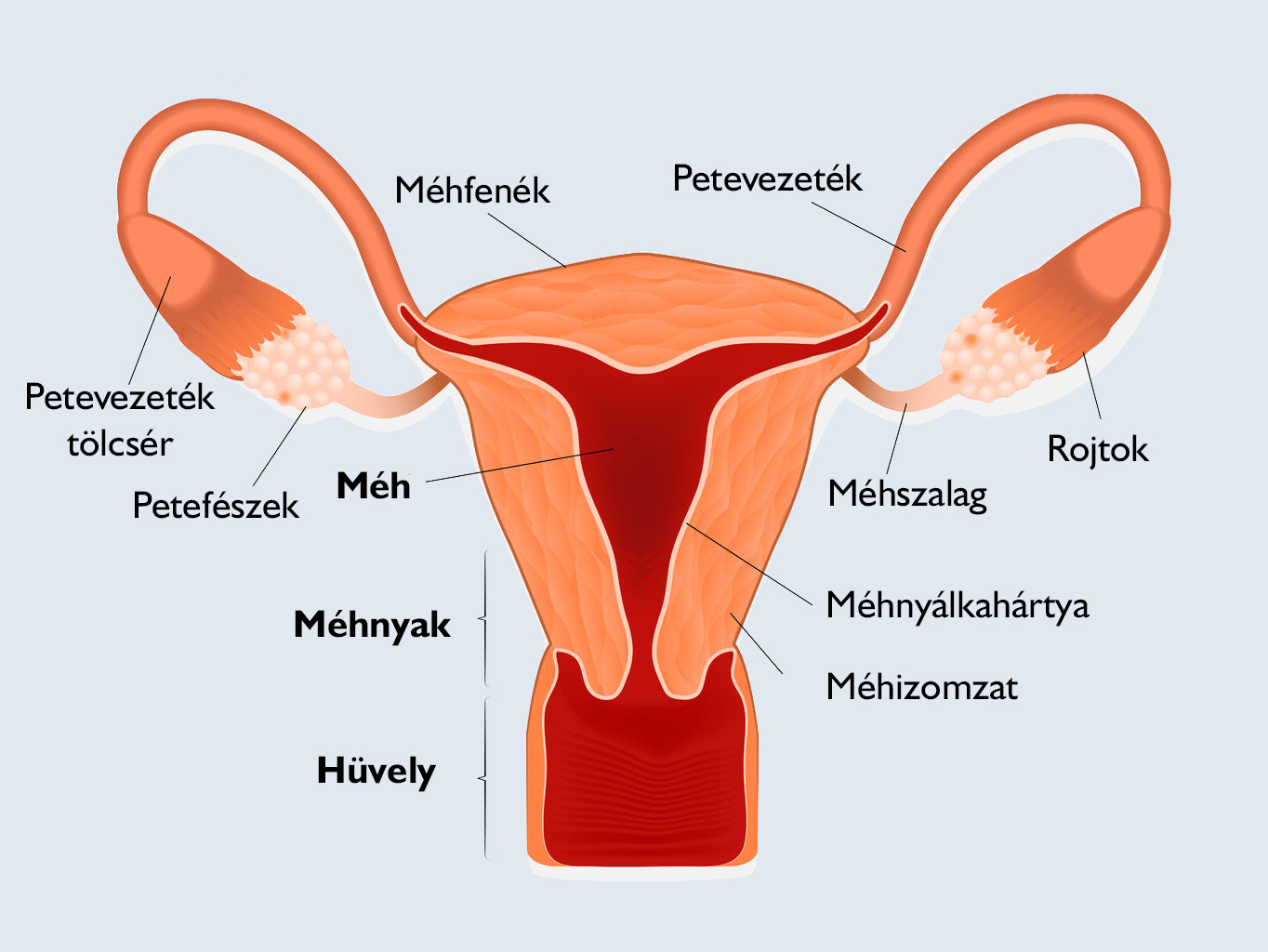Gynaecological inpatient care
We all know how important it is to maintain our health and deal with problems in time. This is especially true for women, as gynaecological complaints are unpleasant, often dangerous, and yet not often mentioned.
Medicover Hospital provides a wide range of interventions to its patients with the help of qualified, experienced physicians.
If you have any complaints, whether long-term or acute, we recommend that you visit our gynaecological clinic. Your doctor can identify the source of the problems and, if necessary, suggest surgery.
We will also welcome you to our hospital with medical recommendations from other institutions; our surgeries are performed with the most modern procedures, most often as part of a short, one-day surgery, ensuring your complete comfort.
Our highly trained colleagues perform the following gynaecological interventions

Major gynaecological surgeries
Minor gynaecological surgeries
Structure and purpose of the uterus
The female reproductive system is more complex than that of men. The female organ produces eggs and can carry, feed and protect the developing foetus.
The purpose of the uterus is to receive the fertilized egg so that the foetus can develop in it and then be born when it reaches maturity. On one hand, the uterus feeds the developing foetus on with its relaxed mucosa and through the creation of the maternal part of the placenta. On the other hand, when the foetus reaches maturity, it ensures its birth with the contractions of its muscle wall.
The human uterus is an inverted pear-shaped organ located in the pelvis. Its wall is largely made up of dense smooth muscle. Its length before giving birth for the first time is 7-8 cm, width is about 5 cm. It weighs 90-120 grams. The size of the uterus of women who have already given birth is slightly larger in size.
Due to its structure, gynaecologists distinguish three parts: the vagina, cervix, and the uterus itself.

Gynaecological consultation
Thorough consultation with examinations is always required before a gynaecological surgery. In doing so, your gynaecologist will determine the cause of the existing problems and recommend medication or surgery based on the diagnosis.
If surgery is performed, your gynaecologist will always determine if the procedure can be performed. If surgery is to be performed under anaesthesia, your doctor will usually make a decision after a blood count, chest X-ray, ECG, consultation with an anaesthesiologist.
The tasks before a gynaecological surgery (diet, medications, preparations) will always be explained to you in time so that you have enough time to prepare, so that your would not have any fears and doubts.
Gynaecological surgeries
The vast majority of our surgeries are performed laparoscopically. This shortens the surgical and healing time, and last but not least, the procedure can be performed through much smaller incisions.
This procedure puts a much less strain on the body and also results in a more aesthetically pleasing wound healing. There are also cases where laparoscopic methods cannot be used safely, in which case conventional abdominal surgery should be performed.
In exceptional cases, despite the most careful examination, we may find a lesion during surgery that would require longer intensive care in the postoperative period or require special intervention. These include extensive abdominal adhesions, advanced malignancies. In these cases, we will only perform a diagnostic procedure and our specialist will inform you in detail about the appropriate care and assists you after the operation.
Convenience services
At our private clinic in Budapest, we accommodate our clients in a modern, pleasant, air-conditioned single room. Each room has a private bathroom, fridge and TV, as well as free WIFI access. We also provide our clients with individual nurse supervision, who will help your continuous recovery during your stay.

